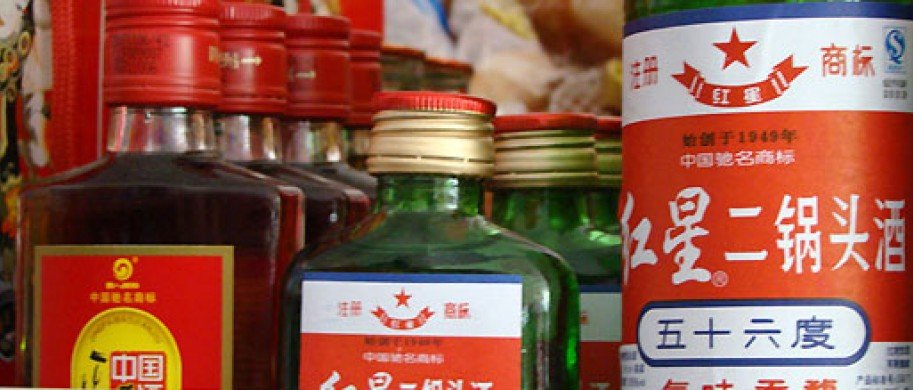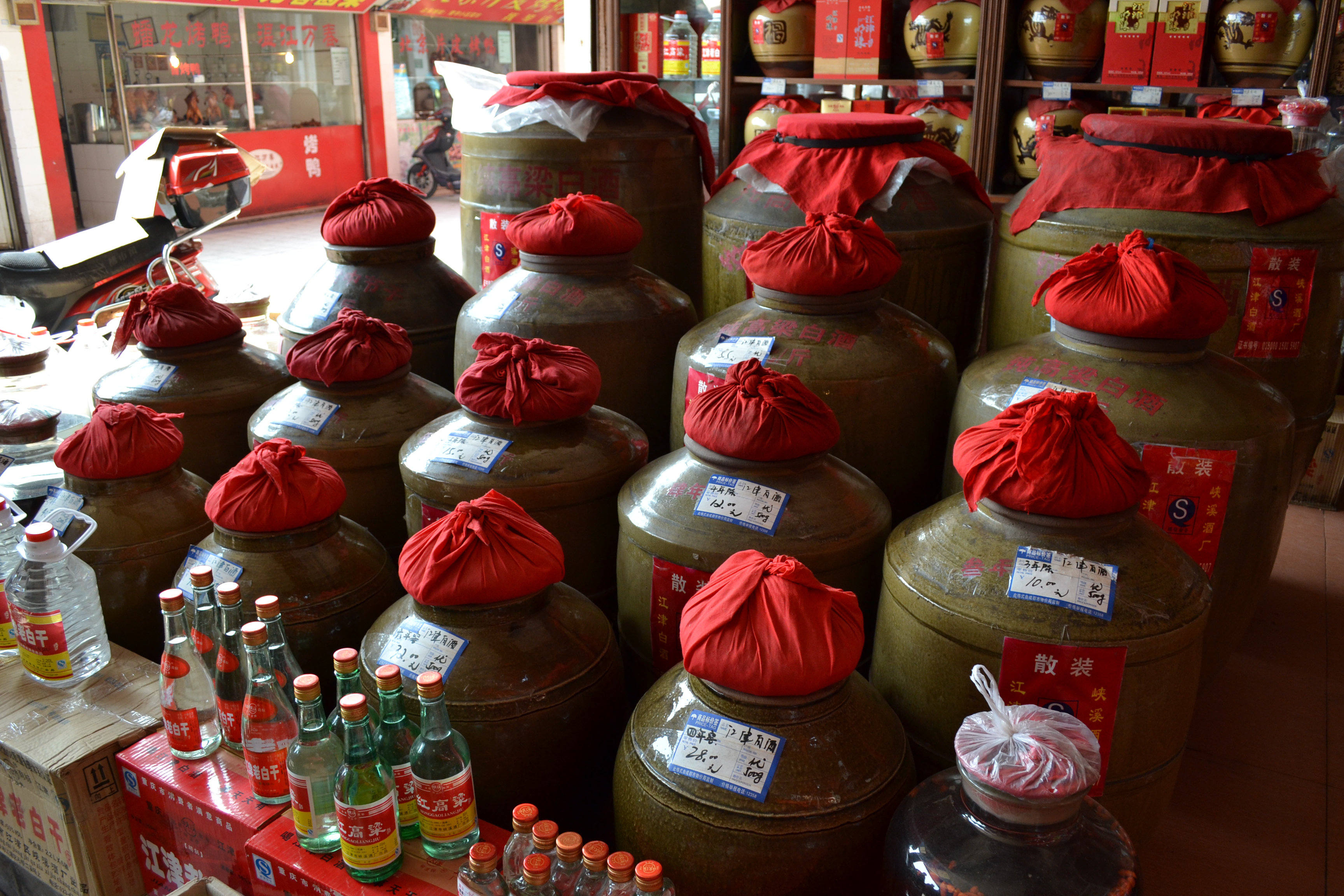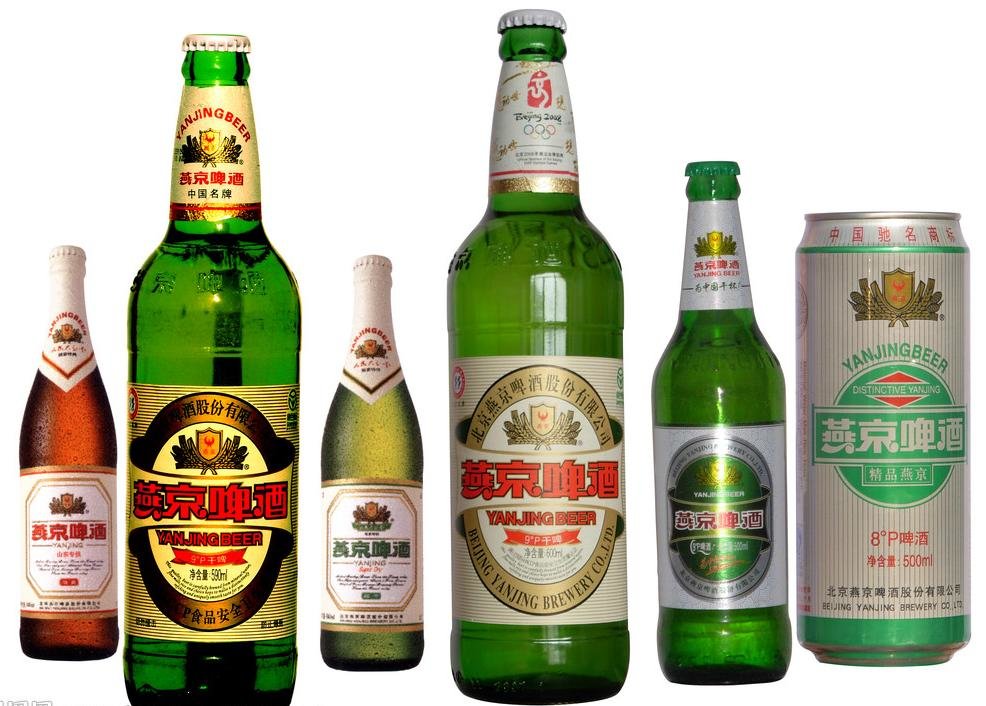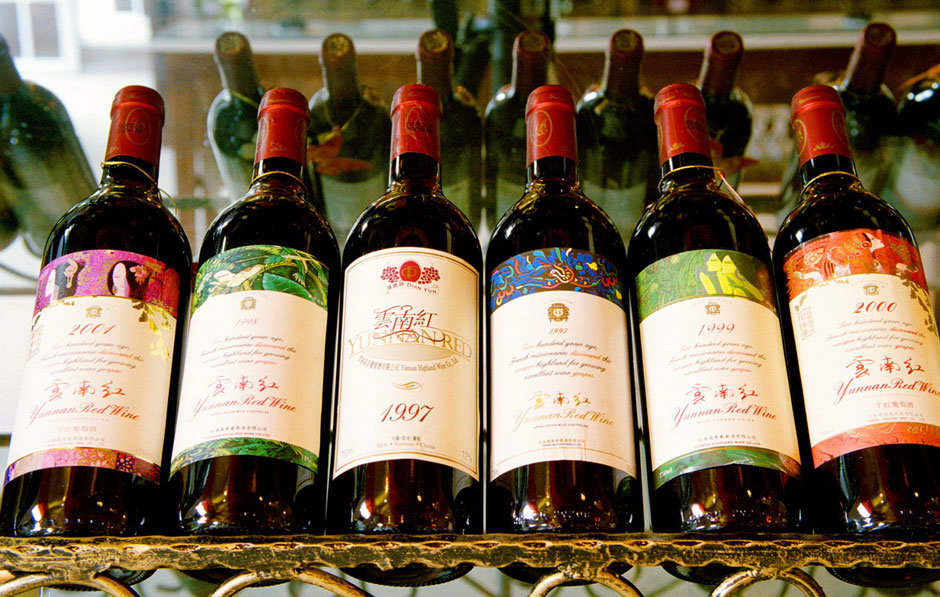
The cause of and solution to many of the problems faced while in China, the various alcohols found on tap in the Middle Kingdom are as abundant as they are varied. From China's staple baijiu (white alcohol), to the widely-available domestic brand beers and wines, there is no shortage of firewater to either complement or replace a meal with.
Baijiu: The White Devil
There are many jokes about "how to know you've been in China too long", but perhaps the most relevant one would be: "You know you've been in China too long when you enjoy a nice glass of bái jiǔ."
Usually made by distilling sorghum, it is not unlike vodka in looks. The similarities end there however. Its subtle sweetness gives one an initial this ain't so bad feeling, which is quickly followed by panic and a rapid search of your memory for all available objects that might assist you in removing it from your system. At 80-120% proof, baijiu ranges from spicy bite to paint strippingly alcoholic. There are numerous brands of baijiu, but two of the most well-known are Mao Tai and Er Guo Tou.

They sit at opposing ends of the cost charts with Mao Tai starting at about 300 RMB per bottle, and Er Guo Tou priced around 8 RMB per bottle. One offers you a level of refinement and sophistication, while the other delivers a punch to your soft parts and doesn't call you the next day. Should neither extreme be your taste, there is a spectrum of other brands that fill the in-between.
Pijiu: An Ale For All Your Ills
Though slow to start in China, beer (pí jiǔ) is rumored to have replaced baijiu as the most drunk drink. Introduced originally, as with most places, by the Germans, it is with these lighter tastes in mind that Chinese beers are brewed.
Beer comes in bottles larger than what are standard in Western countries. With your average Budweiser weighing in at about 350 ml, it is easily overshadowed by the 500-750 ml bottles of Chinese brew.
Tsingtao is the nation's #1 fizzy export, and has a huge domestic following as well. Brewed in the city of its moniker, Qingdao, Shandong, it is widely available and is generally quite cheap. Like its distant cousin, baijiu, Chinese beer also has a plethora of brands to choose from, and most locals have their intra-city/province label.

In most mom & pop restaurants you'll pay 2-5 RMB per bottle, with the price rising to 10-30 RMB at the bars and clubs. Shops will often sell the cheap brands for 3-4 RMB, but may charge you a bottle deposit (often just written on random bits of cut-up cardboard) to assure you'll bring the bottles back to them. Be warned that it is not at all uncommon for the cheap brands to be fakes.
Wines
Be sure that if you are asking for wine at a restaurant that they understand you want pú táo jiǔ, as baijiu is often mistranslated as "wine". In most major cities you'll be able to find a selection of imported reds (hóng pú táo jiǔ or simply hóng jiǔ) and whites (bái pú táo jiǔ).
China also has a rather quickly burgeoning collection of domestic vintners. Though popularity is still rather elitist, there are a number of wines priced competitively with their foreign counterparts. Rieslings, and Merlots might require a bit of a hunt, but most shops with wines will carry some Cabernet Sauvignons and Chardonnays. Prices range greatly, as they do in any country - but you can find cheaper and not terribly tasting bottles for 30-40 RMB, and a decent bottle for around 70-100 RMB.

Spirits / Hard Liquor
Often the small shops wont carry much in the way of spirits (with baijiu and possibly vodka as two exceptions), but larger supermarkets will almost always have a wide choice - from Hennessy and Johnnie Walker to Smirnoff and Tequila, as well as a variety of liqueurs.
The more upscale Chinese-style bars will almost always feature a collection of rather rich men surrounded by some none-too-hard-on-the-eyes girls all drinking an expensive bottle of liquor and playing dice games. These are supplemented with more Western-style clubs that will sell you shots at the bar.
As for domestic brands of whiskey, vodka, or rum - they're uncommon. Imports are the rule, and as such, expect to pay prices similar to home. However, if you come from a country with heavy sin taxes, you might find Chinese liquor prices a steal.
Culture Notes
- China is full of heavy drinkers, at near all times of the day. Drinking and driving, though outlawed, is common. Due to face and such, it's not as common for a friend or colleague to tell someone that they've had too many and they should leave the keys with the bar and call a cab. An important tid-bit to remember when crossing roads, especially post mealtime.
- Despite claims of China being very egalitarian in regards to women's rights, it is generally frowned upon in Chinese culture for a woman to be seen drinking (or smoking) much if anything in public. As would be expected, it's not such a big deal at Western-style bars or restaurants; however, it may be something to remember if you're meeting your Chinese boyfriend's parents for the first time.
Source: lostlaowai.com
- 1255 reads
